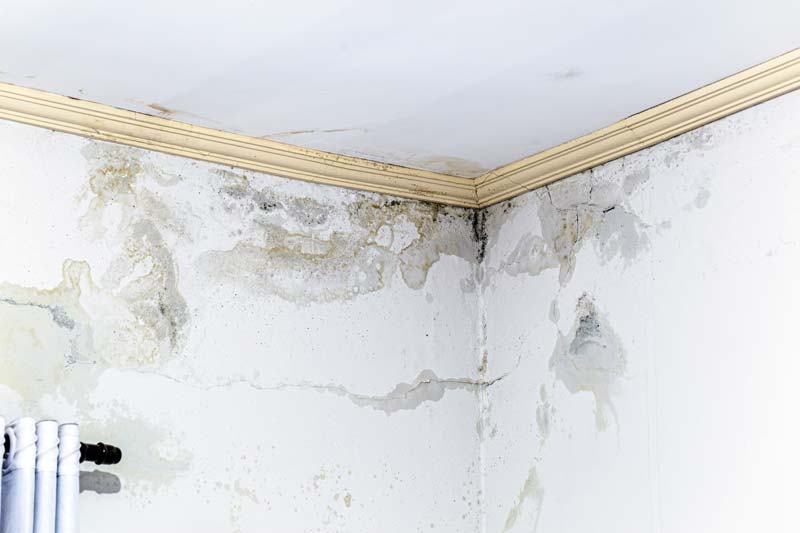Why is there a leak in my plumbing system? Why did a pipe in my home burst?
Many hundreds of millions of dollars in damage occur each year due to the corrosivity of water. Most leaks in your plumbing system are usually caused by corrosion and will eventually require replacement of some sort.
A leaking or burst pipe can cause a significant amount of damage in your home or business. While there are some things you can do to be proactive, if you are faced with a leaking or burst pipe, you must react quickly to get the water flow stopped, the water cleaned up, the moisture dried, and then restore the damaged area.
Corrosive water can cause very serious problems in a home’s plumbing system contributing to leaking or burst pipes. Physical factors that influence corrosion include the type and arrangement of material in the plumbing system, system pressure, soil moisture, the presence of stray electric currents, temperature, and the water flow velocity. Chemical factors that influence corrosion are pH, dissolved oxygen, dissolved solids, and hardness. Biological factors that influence corrosion are iron bacteria and sulfate-reducing bacteria.
Types of Corrosion
Erosion Corrosion
Galvanic
A more complex form of electrochemical corrosion is caused by joining of dissimilar metals. This type of corrosion is called galvanic corrosion. The degree to which a particular metal will become anodic (corrode) in a galvanic reaction is related to its tendency to enter solution. The higher the level of activity, the greater the tendency for metal to corrode. Also, the farther the two metals are apart on the galvanic series, the greater corrosion potential. When Iron and copper pipes are joined, the iron will corrode if the water contains dissolved oxygen. When copper and lead solder are in contact, the lead becomes the anode and will corrode in the presence of copper.
Metallic
Metallic (metal) corrosion in potable water or wastewater is always the result of an electrochemical reaction. An electrochemical reaction is a chemical reaction where the flow of electric current itself is an essential part of the reaction. If the electric current is stopped by a breaking circuit, the chemical reaction will stop. Also, if the chemical reaction is stopped by removing one of the reacting chemicals, the flow of electric current will stop. For corrosion to occur, both electric current and chemical reaction must be present.
Physical factors influencing corrosion:
Biological factors Influencing corrosion:
Why Choose Water Nerds?
- Water Nerds is a family owned and operated business
- We are professionally licensed, insured, and bonded
- We have a superior understanding of water, fire, and mold sciences
- Building thermodynamics experts
- 24/7 emergency response
- Fast response times
- Internal insurance claims team
- Internal legal team
- Free estimates
- We guarantee our work
Clients We Serve
- Residential
- Commercial
- Contractors
- Property Managers
- Private Business Owners
- Educational Institutions
- Government
- Insurance Industry



